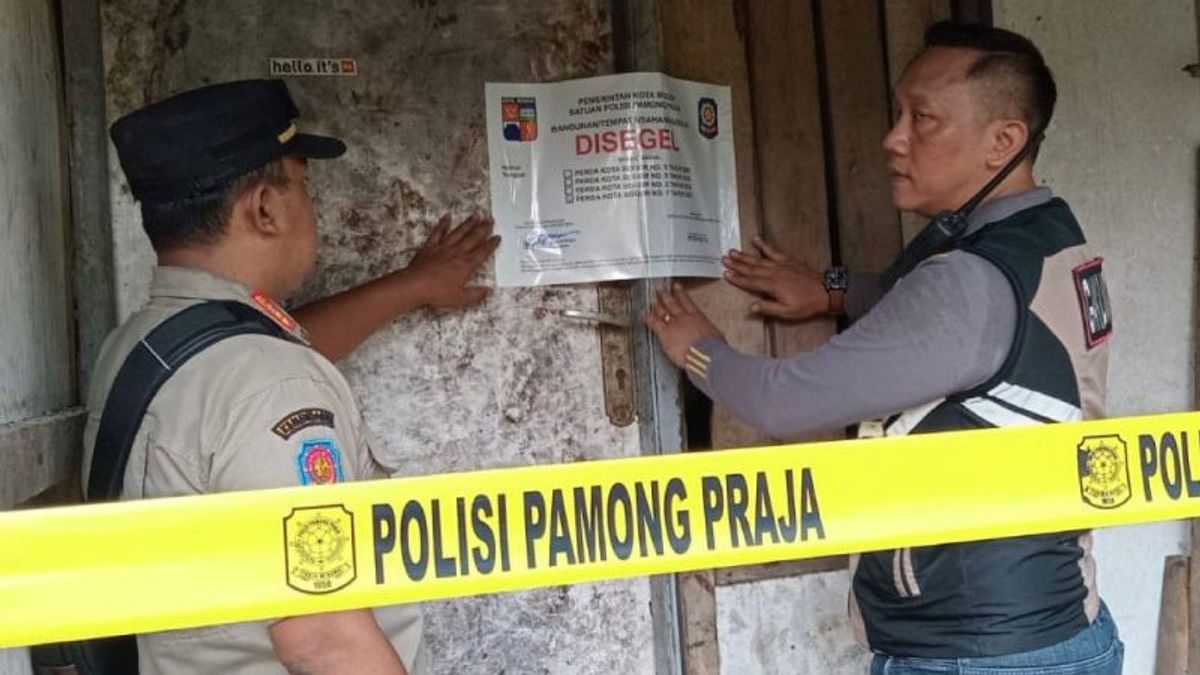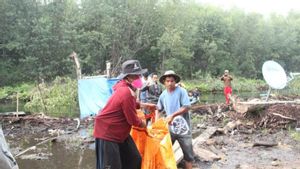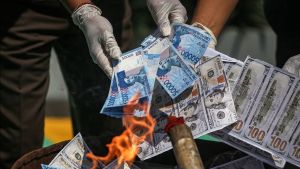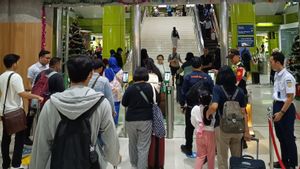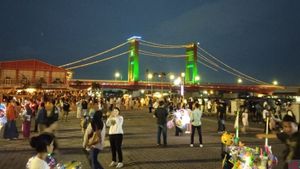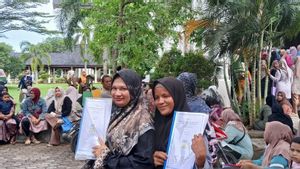The Bogor City Government (Pemkot) joint team consisting of the Ciliwung Naturalization Task Force, DLH, Satpol PP, BPBD, sub-district, and kelurahan sealed the transit warehouse suspected of disposing of waste into the Ciliwung River.
The appearance of foam in the Ciliwung River, Kedung Halang Village, was first seen by residents on Saturday. The findings were then reported to the Ciliwung Naturalization Task Force, regional elements, and the Bogor City DLH.
Head of the Regional Regulation Enforcement Division of the Bogor City Satpol PP Asep Permana revealed the results of an investigation that found a transit warehouse where the raw materials for dish washing soap and clothes were stored on Alkesa Street, Kedunghalang Village.
"So, there is just a transit warehouse, the production is at Citeureup, Bogor Regency, on Ciliwung's lips (Kedunghalang). From the initial confession of the alleged perpetrator in that place, it is only for the testing site. If the material removes a lot of foam, it will sell," he explained, quoted from Antara, Sunday, March 24.
Asep explained that the transit warehouse for storing soap raw materials was suspected to be a source of foam in the Ciliwung River.
This was reinforced by the discovery of barrels containing the same gel, as found by the Ciliwung Naturalization Task Force a few hours after foam carried by river flow to the Bogor Regency area.
Furthermore, DLH took samples in the transit warehouse for laboratory tests, then the Bogor City Satpol PP gave a summons.
"The sample has been taken by DLH who is competent in that field. From the Satpol PP, he gave a summons and sealed the building while waiting for the lab results," he said.
If proven to have violated, said Asep, the perpetrators could be followed up on the basis of violating the Bogor City Regulation Number 1 of 2021 concerning Trantibum, Article 15 related to river order, waterways and water sources (paragraphs 1 and 2). The sanctions received can be in the form of fines, termination of business activities, sealing, and demolition of business premises.
However, if the results of the lab test prove that the waste is categorized as toxic hazardous waste (B3), he continued, the perpetrators can be punished according to Law Number 32 of 2009 concerning Environmental Protection and Management (PPLH).
Article 104 of the PPLH Law states that anyone who dumps waste and/or materials into the environmental media without a permit, will be sentenced to a maximum imprisonment of 3 years and a maximum fine of IDR 3 billion.
SEE ALSO:
The English, Chinese, Japanese, Arabic, and French versions are automatically generated by the AI. So there may still be inaccuracies in translating, please always see Indonesian as our main language. (system supported by DigitalSiber.id)
Most Popular Tags
#Prabowo Subianto #New Year #airplane accident #Hasto Kristiyanto #nataru #squid game 2Popular
31 Desember 2024, 05:24
31 Desember 2024, 05:00
31 Desember 2024, 04:00
31 Desember 2024, 00:04
31 Desember 2024, 08:00
